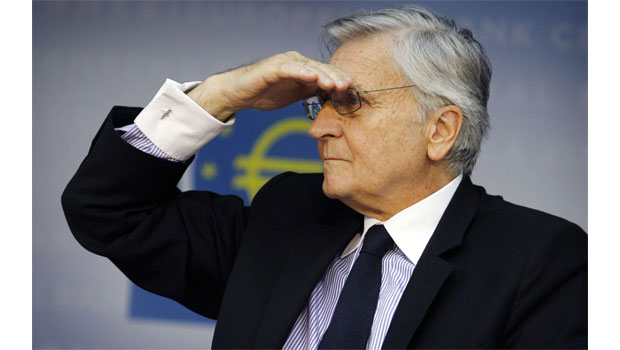Jean-Claude Trichet also reiterated Thursday the bank’s opposition to letting Greece restructure its massive debts.
He appeared to rule out a German proposal to swap current Greek bonds for bonds with a longer maturity to give Greece more time to get its finances under control.
In the immediate term, the markets were more interested in what Trichet said about the path for interest rates in the 17 countries that use the euro, in the wake of the governing council’s decision to keep its key rate unchanged at 1.25 percent for the second month running.
Though Trichet effectively confirmed market expectations that a rate increase in July was likely, he didn’t provide a solid steer that borrowing costs would rise again soon after next month.
A downbeat comment that the economic outlook faced “an environment of elevated uncertainty” left a question mark over how far the bank would go in raising rates. Higher rates are the bank’s chief tool against inflation, but can weigh on growth if done at the wrong time.
As a result, the euro was down 0.7 percent at $1.45 after Trichet’s news conference. Before his comments, it had been trading around a cent higher.
However, Trichet’s remarks reinforced market expectations that the ECB will follow up April’s’ first interest rate increase in nearly three years with another hike in July.
Trichet said “risks to the outlook for price stability are to the upside” and that “strong vigilance” was necessary — the term “strong vigilance” is regarded by economists as code for an increase at the next month’s meeting.
Justifying the stance, Trichet said the bank must make sure that higher oil and commodity prices do not fuel a wage-price spiral as most of Europe’s economy grows. He also rejected suggestions that higher rates would make life harder for Greece and two other heavily indebted countries, Ireland and Portugal.
“When we solidly anchor inflation expectation in the euro area as a whole, we are anchoring stability and also anchoring confidence,” he said. “It’s good by definition for all countries.” The euro zone economy grew a healthy 0.8 percent in the first quarter from the previous three-month period, driven by a strong performance by Germany, its largest country.
The three indebted countries are only a small part of the currency union and the bank must choose one rate that suits the group as a whole.
Asked about the German proposal for extending Greek bonds, advanced by Finance Minister Wolfgang Schaeuble, Trichet said the bank’s stance was “no credit event. No selective default.” Asking bond investors to accept a swap could trigger a “credit event” in the view of ratings agencies, meaning the country’s debt would be downgraded to imminent default or default levels. The exact ratings decision depends on the terms of the exchange but the agencies say if investors are left worse off it’s a default.
Trichet would not be0`bywn on whether he thought it was possible to design a bond swap that did not coerce bondholders.
“We are not designing anything,” he said. “It’s the responsibility of governments.” The bank says that allowing Greece to restructure its debts could spread financial turmoil as banks face losses from the Greek bonds they hold. There are concerns a default could lead investors to withdraw from lending to other indebted countries for fear they would restructure too.
The bank also said it would continue offering unlimited amounts of credit to banks “for as long as necessary.” The unlimited credits are a key tool in propping up the banks in Greece, Portugal, Ireland and in some cases elsewhere. Weaker banks remain dependent on ECB credit because other banks are wary of lending money to them.










